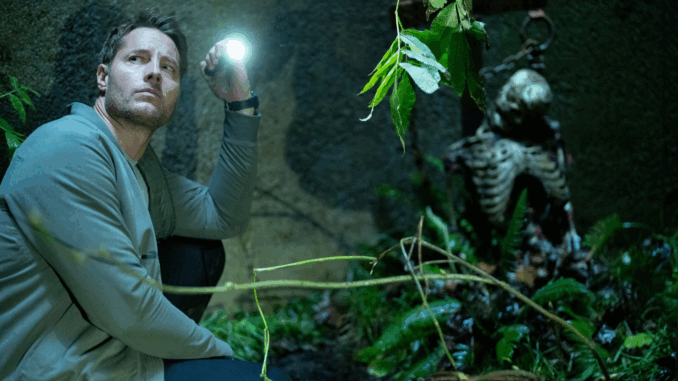
A Fresh Take on the Hero Archetype
While many CBS shows follow law enforcement teams or crime-solving duos, Tracker rewrites the rules. At its core is Colter Shaw—a modern-day bounty hunter who operates alone, without a badge, and with a very personal code. Played by Justin Hartley, Colter isn’t chasing criminals for glory. He’s tracking missing people across America, driven by a mysterious past and a burning need to make things right. In an era of ensemble procedurals, Tracker dares to put everything on one man’s shoulders—and that’s exactly why it works.
Viewers Are Hooked—and It’s Not Just About the Action
Yes, Tracker delivers on thrills: foot chases through forests, high-tech investigations, confrontations with dangerous suspects. But what’s drawing in fans each week isn’t just the suspense—it’s the emotional undercurrent. Every episode connects to Colter’s unresolved trauma from his childhood, particularly the unresolved mystery of his father’s death and his estranged siblings. This blend of heart and danger has given Tracker a unique identity among network dramas.
Justin Hartley’s Most Gritty Role Yet
Fans of This Is Us already knew Hartley could bring emotional depth, but Tracker pushes him into raw, physical territory. Colter Shaw sleeps in his van, reads people like an open book, and survives in brutal conditions. He’s not flashy—he’s functional. And that’s the appeal. Hartley’s performance is grounded, complex, and quietly intense. He doesn’t need a team, a badge, or a title. He just needs a reason to keep moving.
The Scenery Is a Character of Its Own

One of the most visually striking aspects of Tracker is its dedication to location. Whether Colter is in the Arizona desert, deep in a Washington forest, or tracking leads through a midwestern small town, each episode offers a different environment—and challenge. The natural backdrops heighten the realism and give Tracker the kind of cinematic atmosphere rarely seen on traditional network television. It’s not just storytelling—it’s world-building.
Not Just Episodic—It’s Deeply Serialized
While Tracker delivers weekly mysteries that wrap up by the hour’s end, a much deeper story is unfolding beneath the surface. Clues to Colter’s family tragedy, hints about his father’s controversial research, and flashbacks to his survivalist upbringing are all slowly weaving a long-form narrative. It’s a rare balance: instant gratification for new viewers, and rich payoff for long-term fans. This is the secret weapon that has elevated Tracker above the usual procedural format.
A Show That Feels Personal
Perhaps the most surprising element of Tracker is how personal it feels—for the audience and the lead. Colter’s solitary journey touches on universal themes: grief, justice, truth, identity. He doesn’t solve crimes for money (though rewards help); he’s driven by a need to uncover what’s been buried, both in others and in himself. Each missing person he finds is also a mirror, reflecting back his own unresolved pain. That emotional resonance is why viewers keep coming back.
Critics Are Taking Notice
Though Tracker debuted with modest expectations, it has quickly become one of the most buzzed-about shows on CBS. Critics have praised its sharp writing, emotional complexity, and Justin Hartley’s layered performance. What could have been just another procedural has become something much more: a story about isolation, survival, and the cost of chasing the truth.
Season Two Is Gearing Up for High Stakes
With Tracker already renewed, insiders hint that Season 2 will dig deeper into Colter’s fractured family ties. His elusive brother Russell may resurface, and long-standing questions about his father’s death are poised to come to a head. It’s not just about the cases anymore—it’s about the reckoning. Fans should brace themselves for a more serialized, emotionally intense chapter.
Why Tracker Deserves Your Attention
If you’re tired of formulaic crime dramas and want something with more soul, Tracker is your answer. It combines the best elements of suspense, emotion, and character study into a format that feels fresh every single week. It’s not just about finding people—it’s about finding purpose.
In a landscape crowded with familiar tropes, Tracker proves that one man, one mystery, and one personal mission can still break through—and leave a mark. This is network television’s best-kept secret, and it won’t stay hidden for long.
